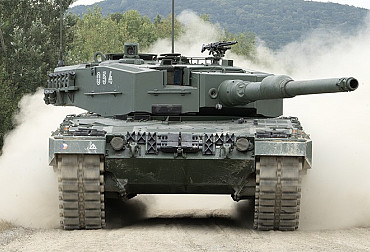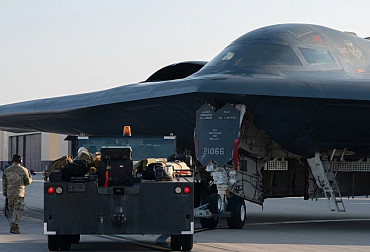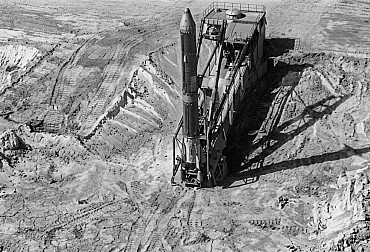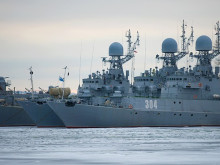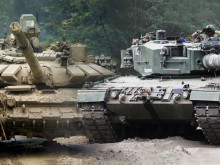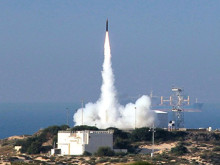European Defence Fund invests €1 billion in 62 projects
The European Commission has announced that it has selected a total of 62 new defense projects under the latest call for proposals from the European Defence Fund (EDF), allocating €910 million for their implementation. These funds are intended to strengthen Europe's defense capabilities and support joint research and development in areas such as unmanned systems, advanced sensors, and cyber defense. Czech companies and research institutions are also well represented in these projects, participating in several key initiatives.
The European Defense Fund, established in 2021, has a budget of nearly €7.3 billion for the period until 2027, of which €2.7 billion is earmarked for defense research and €5.3 billion for the development of defense capabilities. The EDF is a European Commission instrument for supporting cooperation between companies (including small and medium-sized enterprises), research institutions, and public actors across EU Member States.
As Europe faces increasingly demanding security challenges, the European Defense Fund is crucial for modernizing defense technologies, unifying Member States' industrial capacities, and reducing dependence on non-European suppliers. EDF-funded projects also support broader EU geopolitical objectives, such as greater interoperability with NATO, the integration of countries such as Ukraine into the European defense base, and the strategic autonomy of the continent.
The selection of projects published on April 30 was guided by the strategic objectives of the European Defense White Paper 2030, which emphasizes the need for a massive increase in defense investment, the development of key technologies (e.g., artificial intelligence, quantum technology, air defense), and the achievement of EU strategic autonomy. Among the most high-profile projects are ENGRT II, the development of a new-generation rotorcraft led by Airbus Helicopters (EU funding of €100 million), and BEAST, a new European short-range air-to-air missile (with a subsidy of €34.9 million). Also worth mentioning is a classified project for defense against hypersonic missiles with a budget of €78 million.
Czech companies are actively involved in a wide range of projects across various technological fields. Among the most significant are:
- GARUDA – New generation autonomous unmanned aircraft. The GARUDA (ReconfiGurable Autonomous collaBoRative Unmanned aiRcraft) project, led by the French research center ONERA, focuses on the development of autonomous unmanned aircraft systems (UAS). Czech companies AERO Vodochody AEROSPACE and První brněnská strojírna Velká Bíteš play an important role in the project. The European Union will cover the entire project budget of EUR 9.6 million.
- iMUGS2 – Autonomous ground vehicles and swarm technologies. The iMUGS2 project, led by the Estonian company Milrem, has received €50 million and is dedicated to the development of modular autonomous ground systems. The Czech Republic is participating in the project through the Czech Technical University in Prague, which is contributing to the development of system architectures and the implementation of field testing. The project supports interoperability even in complex environments without satellite navigation.
- RESILIENCE-R-2024 – Protection against biological and chemical threats. The University of Hradec Králové is significantly involved in a project focused on the development of innovative diagnostic and therapeutic tools for CBRN threats (chemical, biological, radiological, nuclear). The total budget of the project is almost €15 million, which is fully funded by the EDF.

- Silfrared – Advanced infrared detectors. The Brno University of Technology is involved in the development of inexpensive, compact, and uncooled infrared detectors. The project aims to enhance night vision capabilities in defense applications. The European Union is providing full funding for the project, amounting to over €2.8 million.
- CITADEL Range – Next-generation cyber defense. CyberSecurity Hub, z. ú. from the Czech Republic is part of a large consortium led by Estonia's CR14. The €48 million project focuses on developing advanced training and simulation platforms for cyber operations.
- POINTER – Innovative LIDAR (Light Detection And Ranging) technology. The Czech company ARGOTECH a.s. is one of the key partners in the POINTER project, which aims to develop a compact, high-resolution LIDAR system (remote distance measurement based on calculating the time it takes for a laser beam to bounce off an object). The project has received full EU funding of almost €4 million.
- ARGOS and ARGUS – Satellite data analysis using AI. Czech companies GISAT s.r.o. (in the ARGOS project) and ZAITRA s.r.o. (in the ARGUS project) have been involved in projects focused on automated analysis of satellite images and quantum machine learning. The aim is to improve the EU's ability to detect and monitor military activities.
Of the EDF's total budget of €7.3 billion until 2027, Brussels has so far allocated more than €4 billion. This means that half of the funds have already found recipients. The latest call attracted a record 297 proposals, 62 of which received EU funding. Small and medium-sized enterprises accounted for 27% of all funding, which is the highest share ever.
For the Czech Republic, participation in EDF projects means not only access to significant financial resources, but also the opportunity to actively shape the future of European defense. Czech companies, research institutions, and universities have established themselves as reliable and innovative partners involved in the development of key technologies, ranging from autonomous systems and artificial intelligence to detection and sensor technologies. The European Defense Fund is thus investing in both technological research and the competence and credibility of member states, among which the Czech Republic is playing an increasingly important role.











